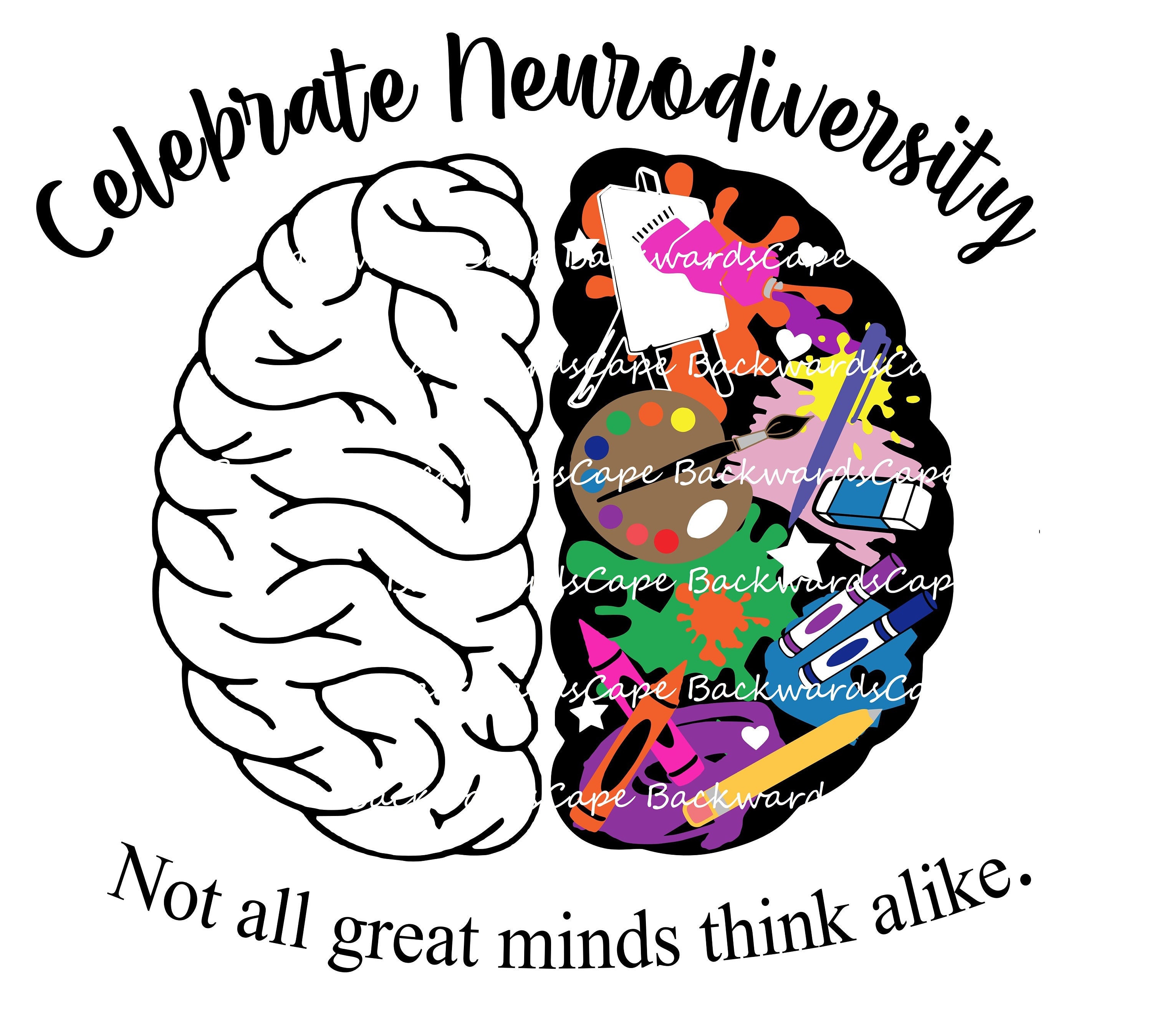Navigating neurodivergent marriages necessitates a multifaceted approach, where parental support serves as a cornerstone for financial stability and emotional well-being. Recognizing the unique challenges faced by neurodivergent individuals and their neurotypical spouses, parental involvement becomes pivotal in fostering empathy, understanding, and resilience within the relationship. By offering emotional validation, practical assistance, and financial support, parents create a supportive environment where neurodivergent couples can thrive. Moving forward, it’s imperative for parents to continue advocating for their children’s needs, promoting independence, and fostering open communication within the family unit. Through collaborative efforts and unwavering support, neurodivergent marriages can weather challenges and emerge stronger, grounded in love, acceptance, and mutual respect.
Introduction
Brief overview of neurodivergent marriages Neurodivergent marriages represent a unique blend of love, understanding, and challenges. They involve partnerships where one or both individuals diverge from the neurotypical spectrum, facing a range of neurological differences such as autism, ADHD, dyslexia, and more.
In the context where the assumption is that the neurodivergent individual is not capable of earning and requires almost round-the-clock emotional support, while the neurotypical person is expected to be the primary caregiver, the stressors on the neurotypical spouse become even more pronounced. In such situations, the neurotypical spouse may experience heightened levels of stress, responsibility, and emotional burden. Here’s how these stressors may manifest:
- Emotional Exhaustion: The constant need for emotional support and caregiving can lead to emotional exhaustion for the neurotypical spouse. They may feel overwhelmed by the demands placed on them and struggle to find time for their own emotional needs.
- Financial Pressure: As the primary caregiver and provider, the neurotypical spouse may experience significant financial pressure. They may worry about covering all expenses while also ensuring their partner’s well-being, leading to stress and anxiety about the future.
- Isolation and Lack of Support: The neurotypical spouse may feel isolated and unsupported in their caregiving role. They may struggle to find understanding from others who may not fully comprehend the challenges they face, leading to feelings of loneliness and isolation.
- Guilt and Self-Doubt: Neurotypical spouses may experience feelings of guilt and self-doubt about their ability to meet their partner’s needs adequately. They may question whether they’re doing enough or making the right decisions, adding to their emotional burden.
- Neglect of Personal Well-being: Focusing solely on their partner’s needs may cause the neurotypical spouse to neglect their own well-being. They may sacrifice their own needs and desires in favor of caregiving responsibilities, leading to burnout and resentment over time.
- Relationship Strain: The demands of caregiving and financial responsibility can put a strain on the relationship between the neurotypical spouse and their neurodivergent partner. Communication breakdowns, conflicts, and feelings of resentment may arise as a result of the stressors both partners face.
- Fear for the Future: Neurotypical spouses may worry about what the future holds for their partner and themselves. They may fear being unable to continue providing adequate care and support, leading to uncertainty and anxiety about the long-term outlook.
Addressing these stressors requires a comprehensive approach that includes seeking support from friends, family, and professional resources. The neurotypical spouse must prioritize their own well-being and establish boundaries to prevent burnout. Open communication with their partner about their needs and limitations is essential, as is finding moments of respite and self-care to recharge emotionally and physically. Ultimately, recognizing and addressing these stressors is crucial for maintaining the health and stability of the relationship and the well-being of both partners.
Importance of financial stability in relationships In relationships, financial stability emerges as a crucial thread. It provides a solid foundation for growth, security, and mutual support. When one partner faces challenges in contributing financially due to their neurodivergence, the need for stability becomes even more pronounced.
Indeed, financial stability is a significant factor in many divorces, including those in neurodiverse marriages. The unique challenges faced by neurodivergent individuals, such as difficulties in securing employment or managing finances independently, can exacerbate financial strain within the relationship. Moreover, the responsibility placed on the neurotypical spouse as the primary caregiver and breadwinner may lead to feelings of resentment, stress, and burnout. Without adequate support and resources to address these challenges, the marriage may face increased tension and ultimately dissolution. Therefore, it’s crucial for couples in neurodiverse marriages to prioritize open communication, seek support from family and professionals, and work together to address financial concerns in order to strengthen their relationship and ensure its longevity.
Focus on the role of parents when the neurodivergent partner cannot contribute financially This article explores the critical role parents play in fostering financial stability within neurodivergent marriages. Their support, guidance, and advocacy become essential in maintaining harmony and security within the relationship.
When a neurodivergent individual is unable to contribute financially to their marriage, parents often play a vital role in providing support and stability. In such cases, it can be wise for parents to take on the responsibility of creating passive and active income streams to support the family. This proactive approach not only alleviates financial strain but also fosters a sense of security and well-being within the marriage. By investing in income-generating ventures, such as rental properties, investments, or small businesses, parents can ensure ongoing financial support for their child and their spouse. Additionally, parents can offer guidance and assistance in managing finances effectively, empowering the couple to navigate their financial challenges with confidence. Overall, parental involvement in creating financial stability can strengthen the foundation of the marriage and promote harmony and resilience in the face of adversity.
II. Understanding Neurodivergence in Marriage
Definition of neurodivergence and its impact on relationships Neurodivergence encompasses a spectrum of neurological differences, including autism, ADHD, dyslexia, and more. These differences can significantly impact communication, social interaction, and behavior within a marriage, requiring a unique approach to understanding and support.
Challenges faced by neurodivergent individuals in marriages Neurodivergent individuals often face specific challenges within marriages, including difficulties with social cues, sensory sensitivities, and managing emotions. These challenges can lead to misunderstandings, conflicts, and feelings of isolation if not addressed with patience and empathy.
Neurotypical individuals in neurodivergent marriages often find themselves navigating a multitude of complexities and challenges that may not be fully understood by society at large. From managing the unique needs and behaviors of their neurodivergent partner to addressing societal misconceptions and stigma surrounding neurodivergence, the neurotypical spouse must often advocate, educate, and support their partner in ways that go beyond conventional expectations. This can include navigating sensory sensitivities, communication differences, executive function challenges, and other aspects of neurodivergence that may impact daily life and relationships. Moreover, the neurotypical spouse may face judgment or lack of understanding from friends, family, and society, further adding to their burden. In light of these challenges, it’s crucial for neurotypical spouses to seek support from understanding communities, educate themselves about neurodivergence, and prioritize self-care to navigate the complexities of their role with resilience and compassion. Through empathy, communication, and mutual support, neurodivergent couples can build strong, thriving relationships that defy societal norms and celebrate the richness of neurodiversity.
Neurodivergent marriages demand resilience, patience, and unwavering commitment from both partners. The unique challenges and complexities inherent in neurodivergence require a level of understanding, empathy, and flexibility that may surpass what is typically expected in a relationship. From navigating communication differences and sensory sensitivities to addressing financial instability and societal stigma, neurodivergent marriages require a steadfast dedication to mutual support and growth. Moreover, the journey of navigating neurodivergence within a marriage can be emotionally and mentally taxing, requiring both partners to continuously adapt, learn, and grow together. However, despite the challenges, neurodivergent marriages also offer profound opportunities for connection, growth, and love. By embracing neurodiversity, fostering open communication, and prioritizing mutual respect and understanding, neurodivergent couples can build resilient, fulfilling partnerships that celebrate the uniqueness of each individual within the relationship.
Importance of support and understanding from spouses and family members Support and understanding from spouses and family members are crucial for neurodivergent individuals in marriages. By providing acceptance, empathy, and assistance when needed, loved ones can create a supportive environment where the neurodivergent partner feels valued and understood.

III. The Impact of Financial Insecurity
Challenges faced by couples when one partner cannot support the family financially Financial insecurity can pose significant challenges for couples, particularly when one partner cannot contribute financially due to their neurodivergence. These challenges may include difficulties in meeting basic needs, strained finances, and uncertainty about the future.
In situations where the neurotypical spouse cannot earn as well as the neurodivergent partner requires support, the dynamics of the relationship may shift, requiring a recalibration of expectations and responsibilities. In such cases, it becomes essential for both partners to communicate openly and honestly about their needs, limitations, and goals. The neurotypical spouse may need to seek support from external sources, such as family, friends, or social services, to ensure that both partners receive the necessary care and support they require. Additionally, exploring alternative income streams or career options that accommodate the needs of both partners can help alleviate financial strain and promote a more equitable distribution of responsibilities within the relationship. Ultimately, fostering a sense of teamwork, empathy, and understanding is crucial in navigating the complexities of neurodivergent marriages where one partner requires additional support.
Stressors on the neurotypical spouse The neurotypical spouse may experience heightened stress and pressure when they are the sole breadwinner or primary financial contributor in the relationship. This can lead to feelings of overwhelm, resentment, and strain on the marital bond.
While it’s true that neurotypical spouses often take on the role of caretaker and provider of financial stability in neurodivergent marriages, this responsibility can come with its own set of stressors and challenges. Here are some stressors commonly experienced by neurotypical spouses:
- Emotional and Mental Exhaustion: Constantly providing care and support for a neurodivergent partner can be emotionally and mentally draining. Neurotypical spouses may feel overwhelmed by the responsibility of managing their partner’s needs while also dealing with their own emotions and concerns.
- Financial Pressure: Being the sole or primary financial provider can create significant financial pressure on the neurotypical spouse. They may worry about covering expenses, planning for the future, and ensuring financial stability for their family.
- Lack of Support: Neurotypical spouses may feel isolated and unsupported in their caretaking role, especially if they don’t have access to resources or support networks. They may struggle to find understanding and empathy from others who may not fully comprehend the challenges they face.
- Guilt and Self-Doubt: Neurotypical spouses may experience feelings of guilt or self-doubt about their ability to provide adequate care for their partner. They may question whether they’re doing enough or making the right decisions, leading to increased stress and anxiety.
- Neglect of Personal Needs: Focusing on their partner’s needs may cause neurotypical spouses to neglect their own self-care and well-being. They may sacrifice their own needs and desires in favor of prioritizing their partner’s care, leading to feelings of burnout and resentment over time.
- Relationship Strain: The demands of caregiving and financial responsibility can put a strain on the relationship between the neurotypical spouse and their neurodivergent partner. Communication breakdowns, conflicts, and feelings of resentment may arise as a result of the stressors both partners face.
- Fear for the Future: Neurotypical spouses may worry about what the future holds for their partner and themselves. They may fear the unknown, especially if their partner’s condition worsens or if they’re unable to continue providing care and support in the long term.
It’s essential for neurotypical spouses to recognize and address these stressors, seeking support from friends, family, support groups, or mental health professionals when needed. Open communication with their partner about their needs, boundaries, and concerns can also help alleviate some of the strain on the relationship. Additionally, finding moments of respite and self-care is crucial for maintaining their own well-being while caring for their neurodivergent partner.
Effects on overall relationship dynamics and well-being Financial insecurity can have profound effects on the overall dynamics and well-being of the relationship. It may lead to increased conflict, decreased intimacy, and feelings of insecurity and instability. Addressing these challenges requires open communication, empathy, and collaborative problem-solving.
IV. The Role of Parents in Providing Financial Stability
Emotional support and validation for both the neurodivergent individual and their spouse Parents play a crucial role in offering emotional support and validation to both their neurodivergent child and their spouse. By providing a listening ear, empathy, and reassurance, they create a nurturing environment where feelings are acknowledged and understood.
Practical assistance with household tasks, childcare, and other responsibilities Parents offer practical assistance to alleviate the burden on the neurotypical spouse. This support may include help with household chores, childcare responsibilities, or other tasks that may be challenging for the neurodivergent individual.
Financial support to cover essential expenses and alleviate financial strain Parents may offer financial support to cover essential expenses, ensuring that the family’s needs are met without undue strain. This support can help alleviate financial stress and promote stability within the marriage.
Advocacy and guidance in navigating challenges related to neurodivergence Parents advocate for their neurodivergent child’s rights and needs within the family unit. They offer guidance and support in navigating challenges related to neurodivergence, ensuring that their child and their spouse have access to resources and services that promote financial stability and overall well-being.
Promoting independence and autonomy while offering support While providing support, parents also encourage their neurodivergent child to develop independence and autonomy. This empowerment fosters a sense of agency and self-confidence, contributing to the individual’s overall growth and well-being.

V. Additional Support and Resources
Education and resources for understanding and managing neurodivergence Parents can help their neurodivergent child and their spouse access relevant education and resources to better understand and manage the neurodivergence. This might involve recommending books, articles, support groups, or therapy options tailored to their specific needs.
Respite care options to give the couple time for self-care and relaxation Providing respite care for the neurodivergent individual can give the spouse some much-needed time for self-care and relaxation. Parents can offer to take care of their child for short periods, allowing the couple to spend quality time together or pursue individual interests.
Facilitating open communication and fostering a supportive family environment Parents play a crucial role in facilitating open communication and fostering a supportive family environment. By creating a safe space for everyone to express their needs, concerns, and feelings, they strengthen the bonds between family members and promote understanding and empathy.
Seeking professional help when needed, such as therapy or vocational training If needed, parents can help facilitate access to professional support services, such as therapy, counseling, or vocational training. These services can provide valuable guidance and assistance in overcoming challenges related to neurodivergence and building a stronger marriage.

VI. Case Studies: Real-life Examples
Highlighting stories of neurodivergent couples and their parents’ support Sharing real-life stories of neurodivergent couples and their parents’ support can provide valuable insights and inspiration. These stories showcase the challenges faced by couples, the support provided by parents, and the resilience demonstrated by individuals and families in navigating neurodivergence within the context of marriage.
Illustrating the positive impact of parental involvement in financial stability Case studies can illustrate the positive impact of parental involvement in fostering financial stability within neurodivergent marriages. By highlighting specific examples where parents have provided emotional, practical, and financial support, we can demonstrate how this involvement contributes to the well-being and resilience of the couple.
Lessons learned and strategies employed by families facing similar challenges Examining lessons learned and strategies employed by families facing similar challenges can offer practical insights and guidance for others in similar situations. By sharing successful approaches to addressing financial insecurity and supporting neurodivergent individuals within marriages, we can empower families to navigate their unique circumstances with confidence and resilience.

VII. Conclusion
Recap of the importance of parental support in neurodivergent marriages In neurodivergent marriages where financial stability may be challenged, parental support emerges as a crucial factor. Throughout this article, we’ve explored how parents play a pivotal role in providing emotional, practical, and financial support to their neurodivergent child and their spouse, fostering resilience and stability within the marriage.
Emphasis on the role of empathy, understanding, and collaboration within families Central to the success of neurodivergent marriages is the cultivation of empathy, understanding, and collaboration within families. By fostering a supportive and nurturing environment where feelings are acknowledged, needs are met, and challenges are addressed together, families can navigate the complexities of neurodivergence with grace and strength.
Call to action for parents to actively support their neurodivergent child and their spouse in achieving financial stability and building a resilient marriage As we conclude, let us recognize the profound impact parents can have in supporting their neurodivergent child and their spouse in achieving financial stability and building a resilient marriage. By offering unwavering support, guidance, and advocacy, parents empower their loved ones to thrive despite the obstacles they may face.
Lets extend a special commendation to the MEDA Foundation for their dedicated efforts in supporting individuals and families affected by neurodivergence. Through their advocacy, education, and support services, they continue to make a meaningful difference in the lives of countless individuals and families.
References
“Neurodiverse Relationships: Navigating Love and Intimacy” by Sarah K. Reece
“NeuroTribes: The Legacy of Autism and the Future of Neurodiversity” by Steve Silberman
“Different… Not Less: Inspiring Stories of Achievement and Successful Employment from Adults with Autism, Asperger’s, and ADHD” by Temple Grandin









